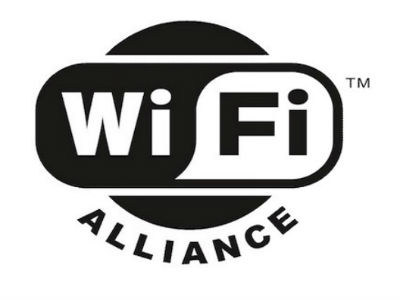New Features Make WiFi Behave More Like Cellular
The smarter way to stay on top of the multichannel video marketplace. Sign up below.
You are now subscribed
Your newsletter sign-up was successful

The Wi-Fi Alliance has introduced a set “Passpoint” certification features that will help WiFi networks tack on properties that make them behave more like cellular networks.
Passpoint, a program launched in 2012 that has received input from the cable industry, aims to simplify the user experience while also beefing up the security of public WiFi hotspots. Generally, Passpoint/Hotspot 2.0 technologies enable a more seamless handoff as users move from one WiFi hotspot to another, and some of the new elements being woven in can prioritize which hotspots in a given area the user hooks into.
Passpoint requires a higher level of involvement and coordination from operators. Rather than rolling out a new flavor of WiFi technology, such as 802.11ac, Passpoint requires a higher level of coordination among operators and deeper ties into their business practices and authentication systems, Greg Ennis, vice president of technology at the Wi-Fi Alliance, explained.
Here’s the new Passpoint certification features that are being rolled out, complementing existing support for seamless connectivity and WPA2 security:
-Online sign-up and immediate account provisioning: This streamlined, on-the-spot process allows users to sign up for a new operator when in the presence of a Passpoint-enabled hotspot. If a consumer is not already subscribed or provisioned to connect, the system will identify the service providers that support access and give the user direct linkage to the subscription authority.
-Secure registration: Provides a uniform, public key infrastructure to ensure that the provisioning process is secured with the appropriate credentials and configuration for network access.
-Operator policy: Focused on the business needs of hotspot operators, this element enables service providers to distribute their specific subscriber policies, such as which networks to join and in what order of preference.
The smarter way to stay on top of the multichannel video marketplace. Sign up below.
Several suppliers are also on board to provide test-bed equipment for the Passpoint certification program: Aruba Networks, Broadcom, Cisco, Ericsson, Intel, Marvell, MediaTek, Qualcomm Atheros, and Ruckus Wireless.
DigiCert and NetworkFX, a for-profit subsidiary CableLabs that was formed in July 2012, are the authorized certificate authorities for the Passpoint program. Hundreds of products have already been certified for Passpoint.
The new Passpoint features and the launch of the broader certification program will help the technology reach “an inflection point,” Ennis said. 2015 “will certainly be a major deployment year.”
Early Passpoint Adopters
Boingo and Time Warner Cable, which announced a roaming pact in June, are among the early adopters of Passpoint, as are Orange, SK Telecom and Telkom Indonesia. More than 20 operators are participating in WiFi roaming trials based on Passpoint, according to the Wi-Fi Alliance.
Passpoint is also emerging as cable operators expand metro WiFi deployments and continue to light up “homespots” in residential broadband gateways that broadcast a secondary SSID that is accessible by credentialed customers. The technology is also expected to grow in importance as the cable industry and other network providers pursue the development of "carrier-grade" WiFi platforms, which was a hot topic at last month's SCTE Cable-Tec Expo in Denver.
The cable operators involved in the “CableWiFi” roaming alliance – TWC, Comcast, Cablevision Systems, Bright House Networks and Cox Communications – have already deployed 250,000 quasi-public hotspots in outdoor venues and business locations. Comcast, which is in the process of deploying millions of homespots, has also forged a WiFi roaming deal with Liberty Global.
And Passpoint could enable cable operators to develop so-called “WiFi-first” mobile voice and data strategies that use cellular networks as a fallback. These emerging business models provide “a disruptive counterpoint to traditional operator services, and retailers are deploying Wi-Fi as a way to improve customer engagement,” The Wi-Fi Alliance noted in Wednesday’s announcement “Wi-Fi roaming agreements among service providers are emerging as an important complement to traditional cellular roaming.”
In a report issued earlier this week, Craig Moffett, partner and senior analyst at MoffettNathanson Research, said the cable industry appears to be best positioned for such a shift, even if it’s not expected to be ready for primetime for years.
The Wi-Fi Alliance also presented results of a study conducted in the U.S. and the U.K. that found that Passpoint can drive customer loyalty and boost business value for service providers and retailers.
Among the findings, 70% of survey respondents (1,000 tablet and smartphone users in the U.S. and another 1,000 in the U.K.) said they would be less likely to leave their cable or wireless provider if they offered a network of widely available Passpoint hotspots, while 68% said they’d switch mobile providers for a Passpoint-enabled WiFi offering, and half would be willing to pay more to get it.
The Wi-Fi Alliance is demonstrating Passpoint, including the new features, today (October 8) at the Palace Hotel in San Francisco in concern with the Wireless Broadband Alliance Wi-Fi Global Congress event.
